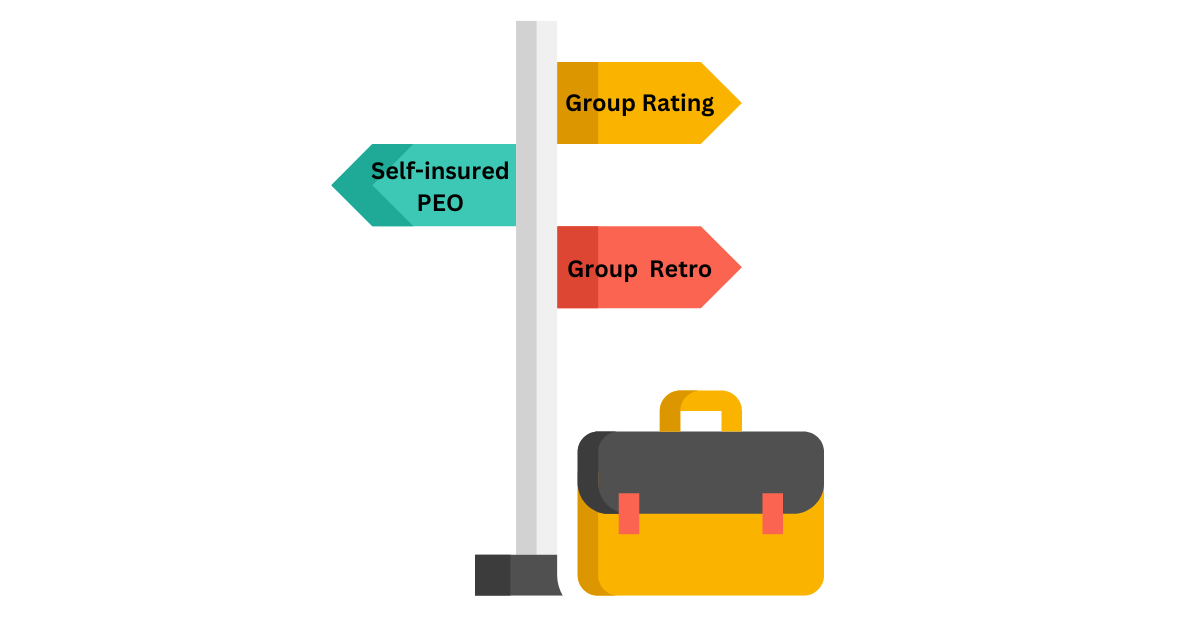News and Updates
Category: Ohio Workers Comp
Choosing the Best Workers' Comp Partner for '24-25
Even though the 2024 BWC policy year is just about to kick off, we’re already looking ahead to 2025 Group Rating and Group Retro programs. It can be hard to feel like a savvy buyer when it comes to workers’ comp in Ohio, but Spooner would like to share some pointers for how to understand the timeline and choose the best partner. If you’re thinking of changing your partner for Group Rating or Group Retro, be sure not to complete the renewal that your current TPA sends this summer. Most employers don’t realize that cutting a check for a renewal in summer of 2024 will obligate them to their current TPA through June of 2026. Make sure your accounting team is aware of this, too. We’ve seen too many unhappy customers of other TPAs get trapped this way. Are you under the impression that because you’re a member of XYZ Chamber of Commerce, you have to utilize their partner for workers’ comp programs? Not the case. The sponsoring organization frames it that way because there’s money on the table. For example, if you are an XYZ Chamber member (who happens to be partnered with a specific TPA) and you want to leave that TPA, XYZ Chamber makes less money. Naturally, they want you to stay with Sedgwick and may even advise you can’t get that discount outside of their partnership. This is patently false. Most TPAs have access to all of the same Group Rating and Group Retro programs for all industries, and the sponsoring org
Is a PEO the Right Fit for Our Nonprofit Organization?
Joining a PEO is a great way for nonprofits to not only save money on operating costs, but to hand off the compliance burden so they can focus on their staff and mission. Some nonprofit organizations worry that the logistics of partnering with a PEO (particularly payroll being reported under a different FEIN) could impact their ability to receive grant funding. Every nonprofit has a cognizant agent/agency, which is where most of the organization’s funding comes from. Nonprofits should check with their cognizant agency to make sure processing payroll under another FEIN won’t be an issue, but our team has been unable to locate any situations where this would be a roadblock for funding. Nonprofit agencies have a lot to gain from working with a PEO. Since many of these organizations are operating on a shoestring budget and staff, compliance issues can either be backburnered or done incorrectly because of staffing and skill set limitations. Even things like payroll and employment taxes can be intimidating for a team whose mission is to fulfill a need in their community – not to be payroll experts. Partnering with a PEO takes payroll and the associated headaches off the organization’s plate, and they can also help with FMLA, unemployment, and HR & safety concerns. In addition to offloading work, there’s also the big advantage of savings. A PEO that is self-insured for workers’ compensation can help nonprofit
Choosing the Best Workers' Comp Partner for Your Business
Even though the 2023 BWC policy year just started, we’re already looking ahead to 2024 Group Rating and Group Retro programs. It can be hard to feel like a savvy buyer when it comes to workers’ comp in Ohio, but Spooner would like to share some pointers for how to understand the timeline and choose the best partner. If you’re thinking of changing your partner for Group Rating or Group Retro, be sure not to complete the renewal that your current TPA sends this summer. Most employers don’t realize that cutting a check for a renewal in summer of 2023 will obligate them to their current TPA through June of 2025. Make sure your accounting team is aware of this, too. We’ve seen too many unhappy customers of other TPAs get trapped this way. Are you under the impression that because you’re a member of XYZ Chamber of Commerce, you have to utilize their partner for workers’ comp programs? Not the case. The sponsoring organization frames it that way because there’s money on the table. For example, if you are an XYZ Chamber member (who happens to be partnered with a specific TPA) and you want to leave that TPA, XYZ Chamber makes less money. Naturally, they want you to stay with their TPA and may even advise you can’t get that discount outside of their partnership. This is patently false. Most TPAs have access to all of the same Group Rating and Group Retro programs for all industries, and the sponsoring orga
Handicaps in Ohio Workers' Comp
When our team meets with prospective clients, we provide an in-depth analysis of their Ohio BWC policy. This allows us to show them how things got to where they are, where they’re headed, and if any of the damage done can be mitigated in some way. By the time we review the claims, it’s sometimes too late to un-ring most of those bells. However, one of the key items we focus on for our clients (especially new ones) is handicap potential. Ohio BWC has a list of pre-existing conditions that would delay a claimant’s recovery following a work-related injury. While some maladies on the list are rare in claimants, the top four are fairly common. If you have a lost time claim in your experience, it’s worth looking into. Here’s an example of what it could look like: Employee files a workers’ compensation claim that causes a 30% increase in premiums (once it enters the experience), to the tune of $20,000 additional each year for four years. Without a handicap, this claim is projected to cost the employer $80,000 in additional premium. Spooner locates medical evidence to indicate a pre-existing condition that qualifies for a handicap, and obtains a handicap at 30% from BWC. Employers receive a benefit from the handicap in either reduced premium payments in the future, or will receive a refund check from the BWC for overpaid premium - depending on when the handicap is granted by the BWC and how far along the claim is in the
Should We Cover Independent Contractors for Workers' Comp?
Don’t let the 1099 fool you. Just because your company doesn’t send these workers a W-2 doesn’t mean you shouldn’t cover them for workers’ compensation in Ohio. You may be thinking, “We’re not concerned – all of our 1099ers have a certificate of coverage from BWC.” Ok, so they knew that they had to manually elect coverage for themselves if they’re an LLC filing as a sole corp right? It can be more complicated than it appears on the surface, but we’re here to help you get a handle on it. Keep in mind this is not legal advice. If you have specific situations about classifying workers, you can always reach out to us, but sometimes it’s best to follow up with an employment attorney. Navigating the world of gig workers can be tricky, but just ask Ugicom – it’s best to classify workers correctly from the beginning. A lot of employers will casually mention that they don’t have to cover certain workers as employees for workers’ comp, because these people are independent contractors. Unless they come and go as they please with no schedule parameters, don’t utilize company vehicles or other property, and you have no say in the work they perform - they may in fact be independent contractors. If you can’t confidently tick all of those boxes, it may be time to reevaluate. When Ohio BWC performs a payroll audit, the
2020 Policy Year True Up Reminder!
It’s a wrap on the 2020 policy year, which means you should be submitting your company’s annual payroll True Up to BWC. True Up is a process required by Ohio BWC at the end of each policy year, where your premiums based on projected payroll are balanced with premiums based on your actual payroll for the past year. Compliance with both the reporting and payment of any balances affects your company’s eligibility for most savings programs. The “deadline” to submit your payroll true-up reports on the Ohio BWC website is August 15th – but there are some finer details to consider. August 15 falls on a Sunday, which makes the deadline Friday August 13, realistically speaking. We’ve also learned that historically, you should allow 24 hours for posting – which makes the real deadline Thursday August 12. You will also need to pay any applicable balances if your payroll was higher than what the Ohio BWC estimated for the period of July 1, 2020 to June 30, 2021. Balances are expected to be paid during the designated reporting period, but there is a small grace period on both reporting and payments. If you are unable to pay the entire balance at the end of the reporting process, please note that any future payments will first be applied to your delinquent True Up Balance before being applied to your premium installments. Payment plans for True Up balances are only available through the Ohio Attorney




